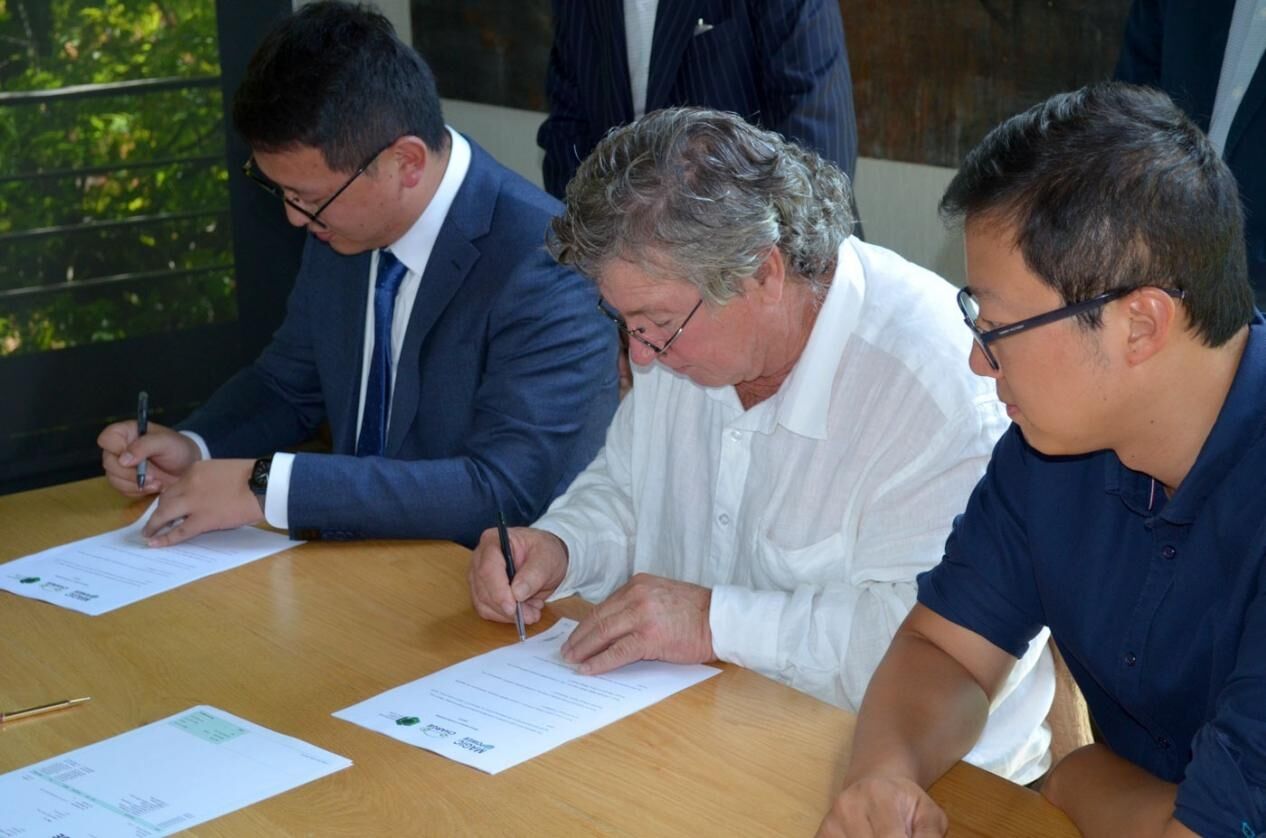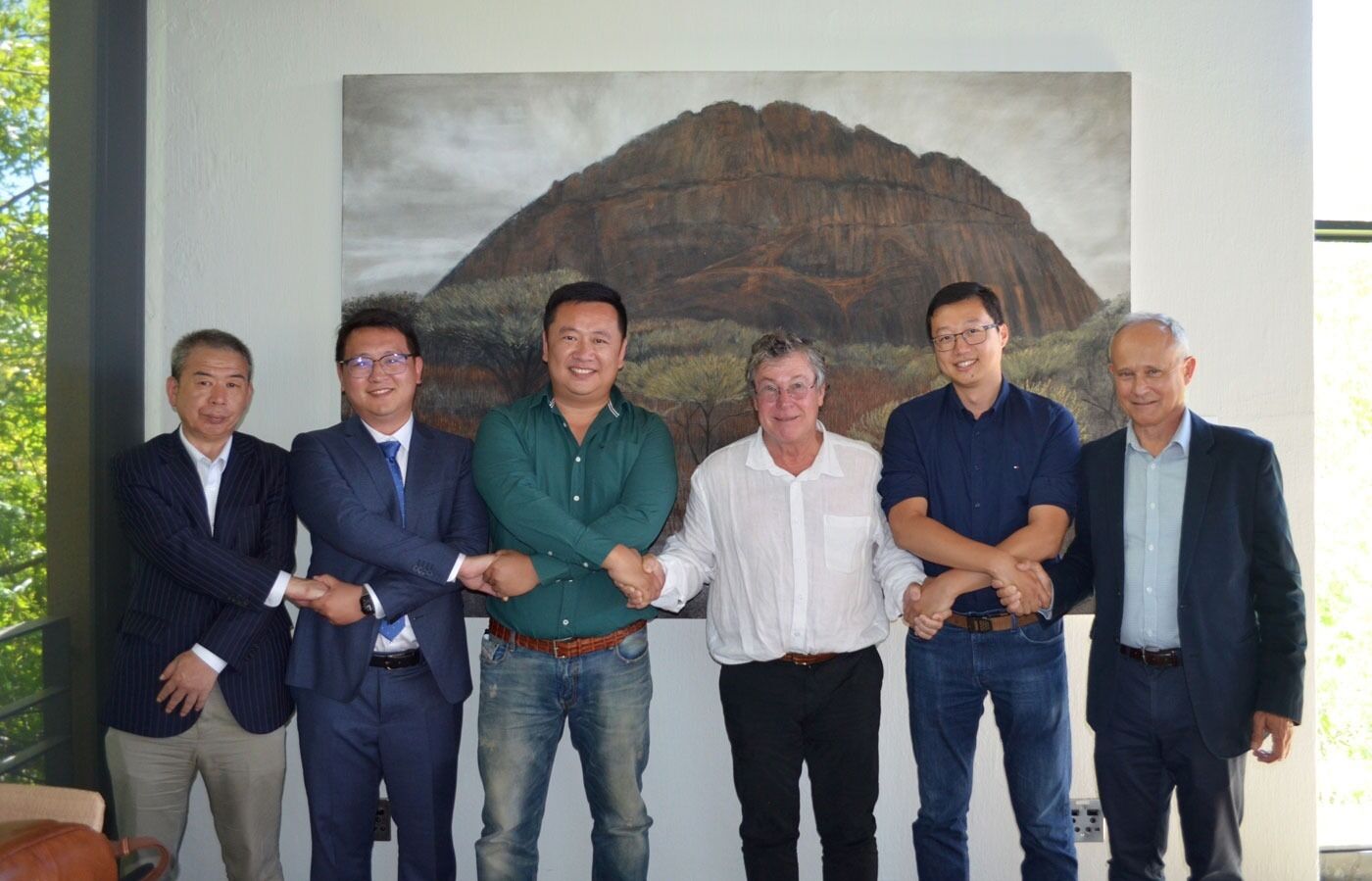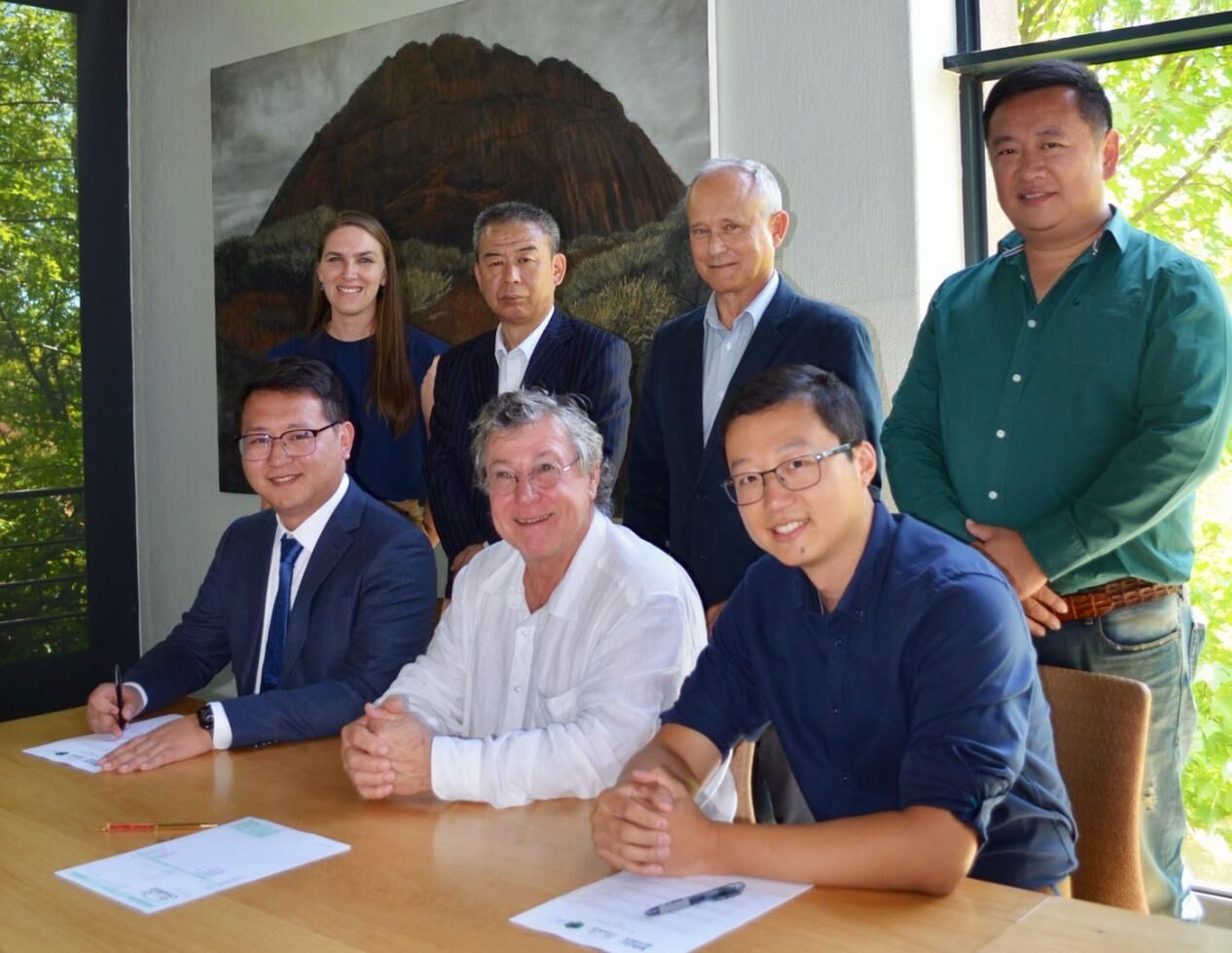MagicPower Signs R1 Billion Deal with Zero Carbon Charge to Boost Electric Vehicles in South Africa
On February 7, 2024, MagicPower signed a memorandum of understanding (MOU) with South African electric vehicle charging station contractor Zero Carbon Charge and held a grand signing ceremony in South Africa, to bring 120 renewable supercharge stations across the country, worth R1 billion. Once completed, this network will be the first-of-its-kind and the largest scale integrated supercharging systems built and imported locally in South Africa and even Africa, writing a new chapter in renewable energy development and the South African electric vehicle industry.

MagicPower's director, co-founder and representatives of its local partner Greencore Energy Solutions, were invited to attend the signing ceremony together with Zero Carbon Charge's co-founders and directors. Both parties jointly expressed that this collaboration signifies not only synergy at the business level but also a shared commitment to sustainable development, aimed at driving the development of renewable energy and green technology, making positive contributions to South Africa's EV industry. "We are proud to help position South Africa as a global frontrunner in the move towards cleaner EV energy sources," added Andries Malherbe, Co-Founder and Director of Zero Carbon Charge.

South African Government’s own draft Integrated Resource Plan 2023 has shown that South Africa’s national predominantly coal-fired grid will not be able to cope with the demands imposed on it by the mass charging of EVs. To stabilise the grid and end loadshedding faster, it is critical that prioritisation is given to the roll-out of off-grid powered EVs.
In addition, if South Africa is to reach its global emissions targets, it is essential that renewable energy (and not electricity sourced from coal) is used to power EVs: an EV charged with Eskom’s coal-fired electricity emits 5.3 metric tonnes of carbon emissions in a year whereas a petrol vehicle, on average, emits 4.4 metric tonnes of carbon emissions in a year if driven over the same distance.
Therefore, the energy storage system project between MagicPower and its South African partner Zero Carbon Charge has attracted considerable attention. This exciting collaboration is a game-changer for the adoption of EVs in South Africa, as it will enable motorists to charge any EV at its maximum rate using solar-powered, off-grid charging stations. This will not only reduce the carbon footprint of EVs, but also ease the pressure on the South African national grid, which is struggling to cope with the demand for electricity.
Our first batch of superchargers is expected to arrive in South Africa before July, and the full network of 120 charging facilities should be operational by September 2025. This project will also create 1,000 direct jobs and boost the local economy.
This not only showcases the leadership positions and professional capabilities of both entities in the industry, but also establishes a new benchmark for advancing new energy technologies in the South African market.
Zero Carbon Charge focuses on off-grid electrification of mobility in Africa. Introducing South Africa’s first off-grid national charging network for electric vehicles – powered by 100% renewable energy. Charging an EV to 80% in about 20 minutes with high power chargers.
And MagicPower, as a leading global provider of photovoltaic energy storage and charging solutions, launched its new industrial and commercial energy storage system product this year. It adopts a modular design of standard cabinet type and container type, to meet the diverse needs of special industrial and commercial application scenarios, making installation and debugging very convenient and enabling quick response to customer needs. Committed to providing flexible, safe and efficient "smart energy storage".

This time in South Africa, the 480 kW liquid-cooled supercharger systems supplied by MagicPower and Greencore Energy Solutions will seamlessly integrate with the solar PV generation and battery storage at each of the 120 charging stations, boosting the development of electric vehicles in South Africa.

 EN
EN
 AR
AR
 CS
CS
 DA
DA
 NL
NL
 FI
FI
 FR
FR
 DE
DE
 EL
EL
 IT
IT
 NO
NO
 PL
PL
 ES
ES
 SV
SV
 TL
TL
 ID
ID
 UK
UK
 VI
VI
 TH
TH
 TR
TR
 AF
AF
 MS
MS
 MY
MY
